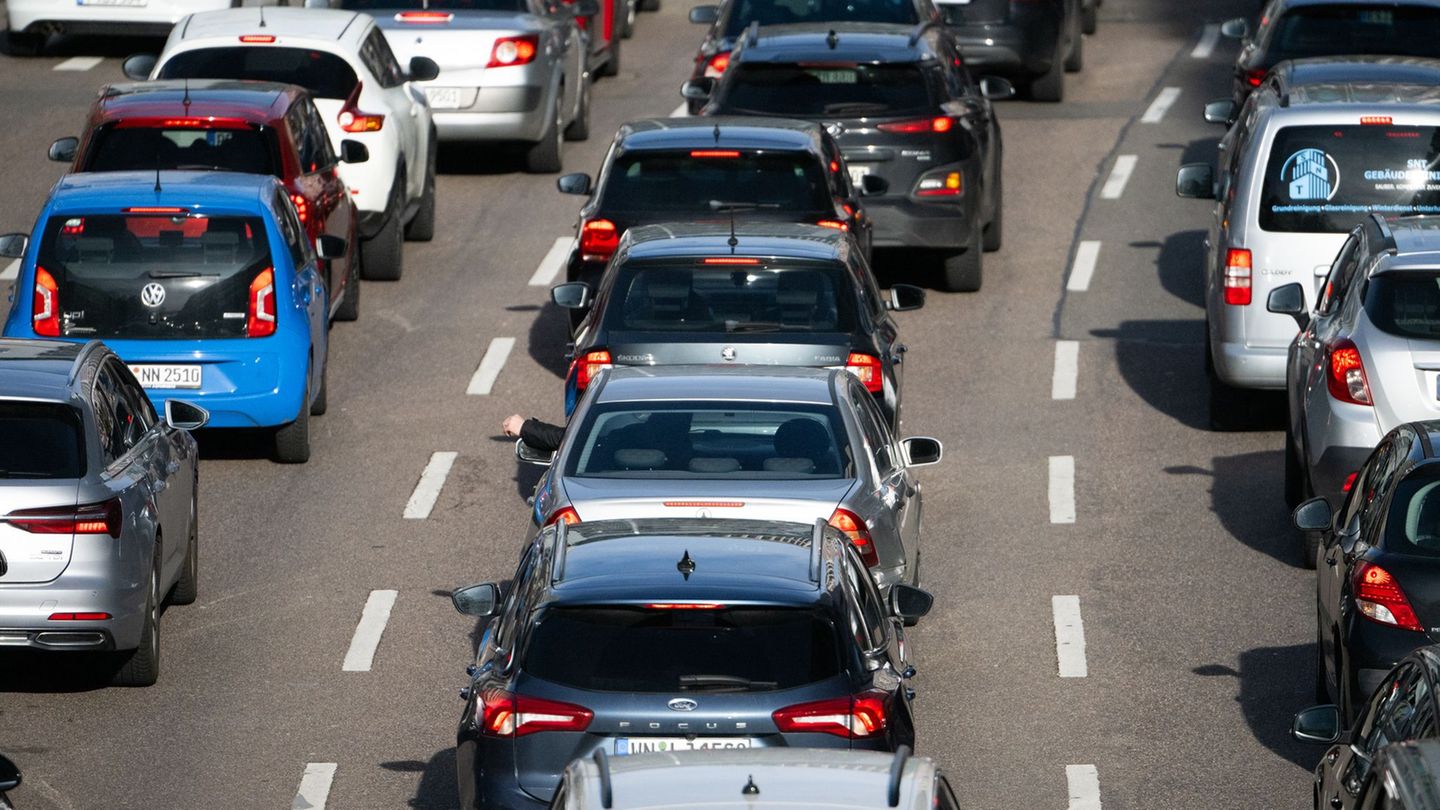It is an ongoing dispute in the coalition for which no solution is in sight. Should motorways also be built faster? Environmental organizations give the Greens arguments.
In the midst of an ongoing coalition dispute, environmental groups are taking a stand against the construction of autobahns in Germany. A paper submitted by Greenpeace and the Bund für Umwelt und Naturschutz Deutschland (BUND) states that not only the use of roads is harmful to the climate. “The construction, operation and maintenance of the motorways and federal roads also makes a decisive contribution to the worsening of the climate crisis.”
Additional autobahns and federal highways made road traffic faster and more attractive. Above all, they increased the distances covered. Greenpeace mobility expert Lena Donat said that more and more roads are only increasing the climate lag of traffic. A “climate check” of the federal transport route plan is essential to ensure that climate targets are met in transport. “Until then, all highway projects should be put on hold.” BUND managing director Antje von Broock commented that the current federal transport route plan was untenable. The federal government must be serious about protecting the climate and species.
In the governing coalition of SPD, Greens and FDP, there has been a dispute over faster planning procedures in traffic for weeks. Main opponents are the FDP and the Greens. Transport Minister Volker Wissing (FDP) not only wants to build faster railway lines and bridges, but also motorways. The Greens reject that.
Significantly more CO2 emissions
According to the analysis by the environmental associations, the construction and expansion of motorways and federal roads produce significantly more CO2 emissions than the environmental report on the Federal Transport Infrastructure Plan 2030 shows. More than 13,000 hectares of land would be taken up by the construction of urgent trunk road projects alone. 250 so-called natura 2000 areas would possibly and 87 probably be significantly affected, around 1000 kilometers of previously connected large animal habitats would be cut up again.
These are argumentation aids for the Greens – but they are also associated with clear expectations. Instead of new motorways, the Greens want an expansion and more funds, especially for the rail network.
Wissing also wants more money for the rails – but he emphasizes that motorways also have to be built faster. His proposed path: Projects that the federal transport infrastructure plan considers to be urgent should in future be in the “overriding public interest”. This is intended to speed up the approval process and shorten court proceedings. An outstanding public interest already applies to the construction of green power plants, for example.
FDP: Road is the most important mode of transport
Wissing refers to a long-term forecast by the Ministry of Transport. According to this, freight traffic in Germany will increase massively by the middle of the century – while road transport will grow disproportionately. The road remains the most important mode of transport. The motorway network in Germany currently covers almost 13,000 kilometers.
The FDP accuses the Greens of waging an “ideological fight” against the streets. FDP leader and Finance Minister Christian Lindner followed up on his party’s political Ash Wednesday in Dingolfing. Nothing is more harmful to the climate than burning petrol because you are stuck in traffic.
The only question is how the Autobahn dispute can be resolved. On March 5th and 6th, the cabinet will meet for a retreat at Schloss Meseberg, after which there could be another meeting of the coalition leaders. There could be an overall package, and other projects in the coalition, for example in social and financial policy, are also controversial.
Above all, the Greens are pushing for efforts to be stepped up so that climate goals in transport can be achieved. The coalition could agree to build faster only some particularly important highway projects where there are major bottlenecks. Or will the FDP give up its resistance to the introduction of a general speed limit in return for faster motorway construction?
Source: Stern
I have been working in the news industry for over 6 years, first as a reporter and now as an editor. I have covered politics extensively, and my work has appeared in major newspapers and online news outlets around the world. In addition to my writing, I also contribute regularly to 24 Hours World.




